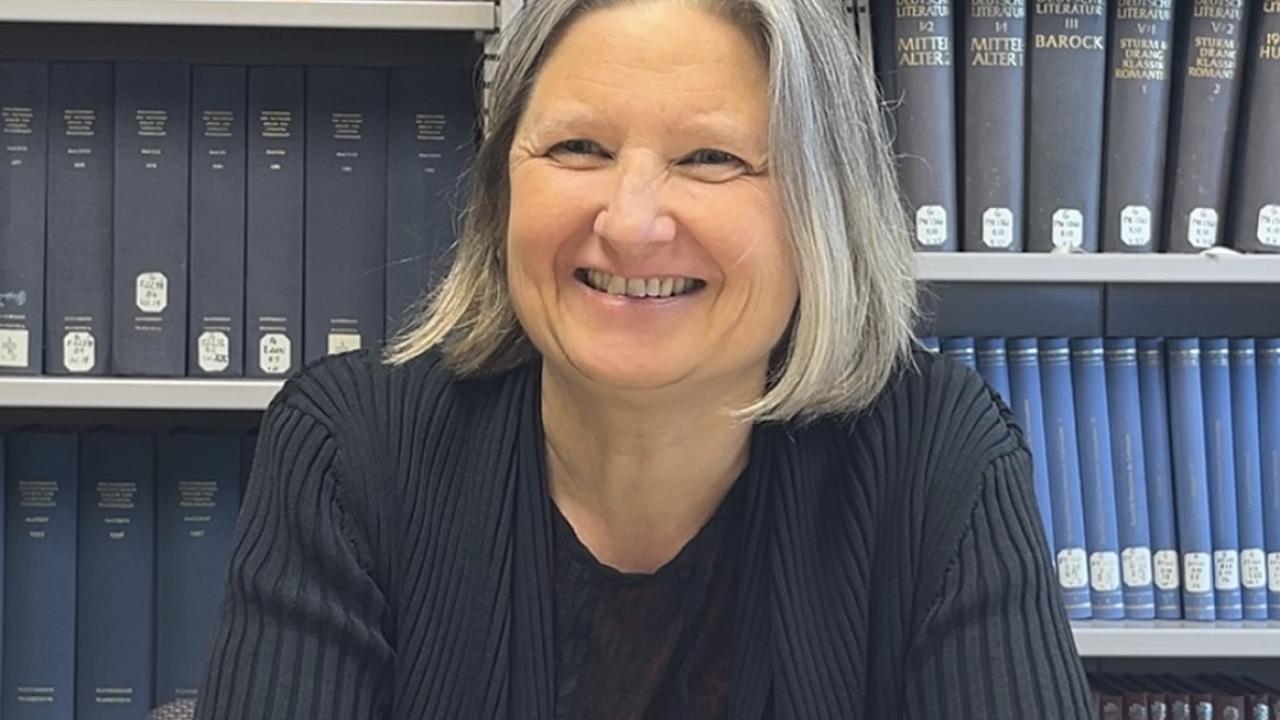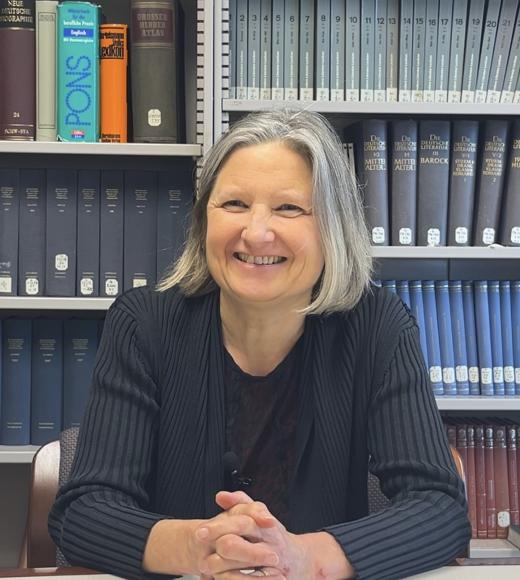
Girl Power: The Complexity of Feminine Free Will
Quick Summary
- Dr. Elisabeth Krimmer shares her research on women's history and agency, from cross-dressing to contemporary witch hunts.

Dr. Elisabeth Krimmer has a reputation among students for being kind, generous and passionate about her work. This passion is also evident in her prolific research–she has written and edited 18 books and over 50 articles. Originally from Munich, Germany, Dr. Krimmer is a professor of German, author, researcher, mentor and recent recipient of the UC Davis Academic Senate’s Distinguished Teaching Award for Graduate and Professional Teaching.
Female agency: the good, the bad and the ugly
Much of Dr. Krimmer’s work is driven by her interest in women’s agency. Her first book, In the Company of Men: Cross-Dressed Women around 1800 (Wayne State Univ. Press, 2004), explores the range of agency cross-dressing afforded to women at the time. “The minute they cross-dressed, they could do things that otherwise would have been completely off-limits for them,” she explains. She has also edited volumes on topics such as the German “Me Too” movement, German models of female leadership and more, and is currently writing a group biography of four German women–an artist, a peace activist, a communist and a writer–in the late 1800s.
This interest goes beyond the empowering narratives, however. She also studies the dark side of female agency, including women who worked with the Nazis or supported German colonialism. Some women may simply have been inclined toward conservative gender roles and nationalism, she says, but others likely wanted to elevate their own social status–as women, they were lower on the social scale, but being “Aryan” gave them a sense of superiority that they otherwise might not have had.
Black and white and shades of gray
By learning about the women of the past, Dr. Krimmer has come to appreciate human complexity in a new way. “The more you get to know the historical figure you’re researching, the more you see the black and white and shades of gray…it’s never quite that simple.”
Case in point: Clara Zetkin, one of the women Dr. Krimmer is researching for her current book project. Zetkin was a devoted communist who was willing to give up democracy in favor of a proletarian dictatorship, believing the people weren’t ready to make what she saw as the “right” decisions for themselves. “I can’t express strongly enough how much I disagree with that,” Dr. Krimmer says.
However, in 1932, just as the Nazis were about to take power, Zetkin was the oldest member of the Reichstag (German Parliament)--which gave her the right to open that parliament session. She was in the final years of her life, bedridden, and had to be carried in and propped up, but she delivered a speech that was, among other things, a condemnation of the Nazi party and Nazi assassins.
“She took a powerful stand in a very crucial historical moment,” Dr. Krimmer reflects. “I don’t admire all of what she did, but this–dragging herself to the podium to speak out–that was very important.”
Connecting the past to the present
Dr Krimmer’s studies also help her draw parallels between historical themes and the cultural climate of the present day. She sees these particularly in the content of two of her classes: Fairy Tales (GER 010) and Witches: Myth and Reality (HUM 013).
In old Disney movies and fairy tales, she muses, “you often see women in power being portrayed as absolutely evil. I think that is something that, as a culture, this country is struggling with. From early childhood, you’re exposed to cultural products that portray women in power as having this devious agenda. I do think that shapes us.”
When it comes to modern-day examples of witch hunts, the 2016 “Pizzagate” conspiracy, in which Hilary Clinton was accused of masterminding a group of pedophiles, comes to her mind. “Witches were always accused of killing, eating or abusing children in various forms. Some cultural patterns, sadly, haven’t progressed very far from those times.”
Small classes, big impact
Dr. Krimmer’s advice for current students emphasizes the importance of community. “Seek out smaller classes,” she says. “Small classes help you find that community.”
Where should you start? Many German classes have around 25 students! The program offers upper-division classes on German literature and culture that are taught in English, including Professor Krimmer’s class on fairy tales, in addition to language classes. If you want to take a class next quarter but can’t wait that long to get involved, you can start now by checking out Deutschklub, the German student organization on campus, to watch movies, play games, and make new friends!
If you want to learn more about Dr. Krimmer, her research, and her classes, you can connect with her via email at emkrimmer@ucdavis.edu or visit her during her office hours.
